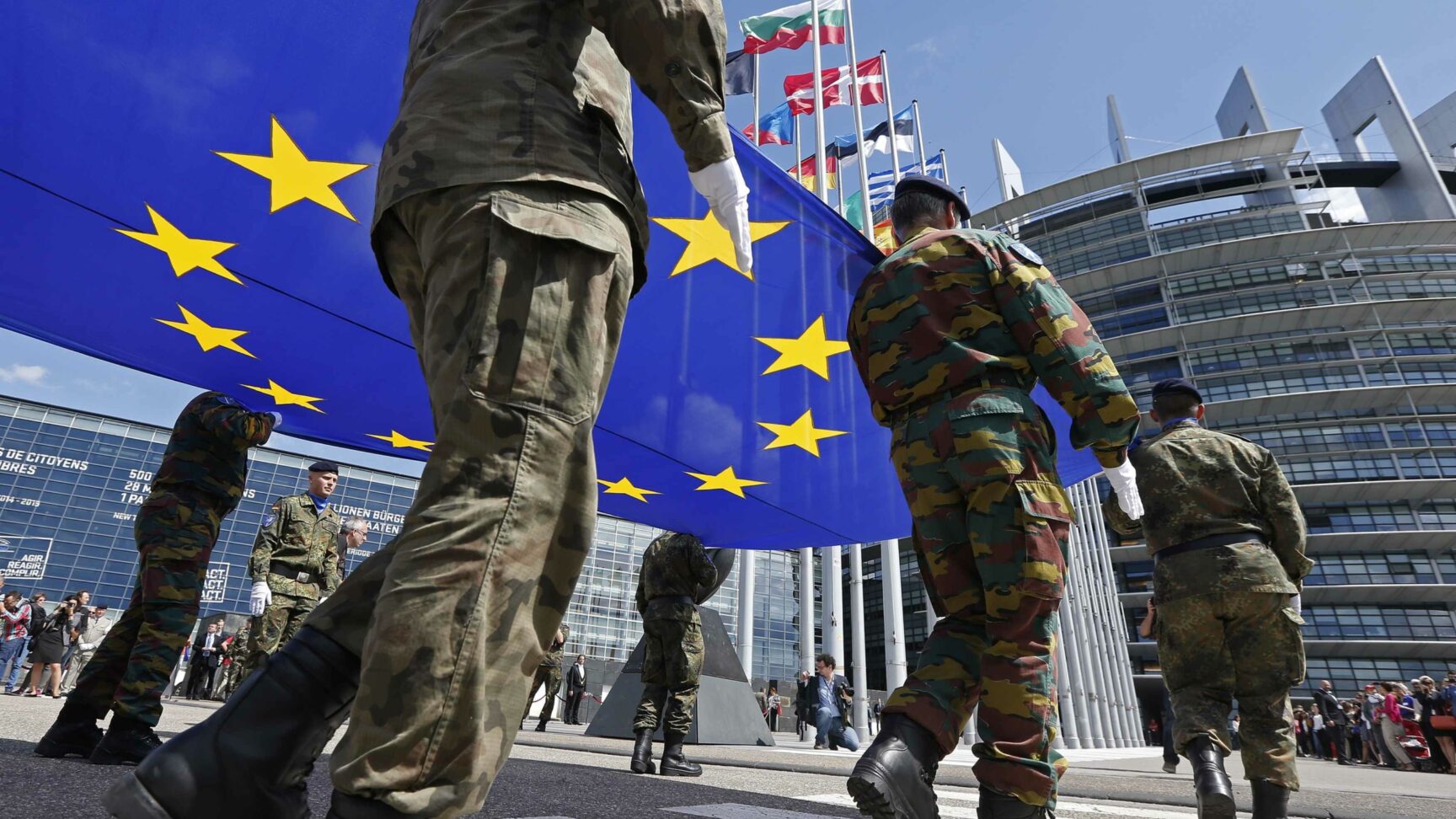
Defending Europe with less America
Shifting US priorities and a degrading security environment – not to mention the possibility of a second Trump presidency – mean Europeans finally have to take more responsibility for their own security
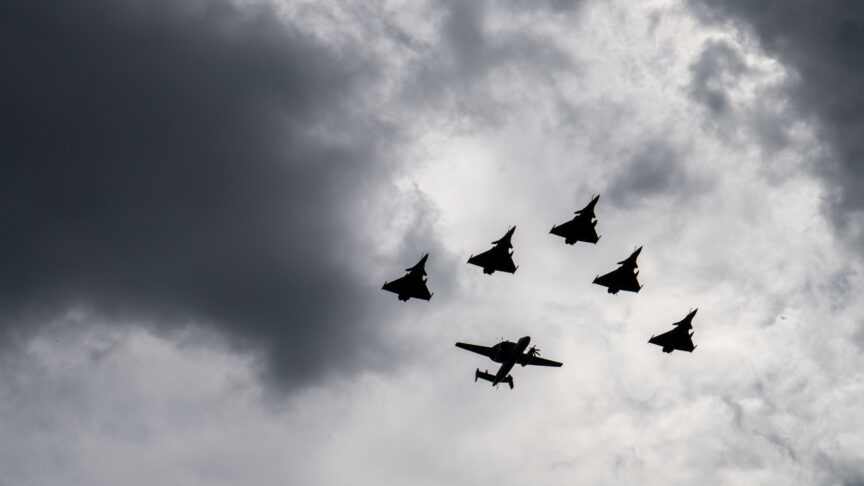
The EU’s red tape is preventing it from responding quickly enough to major crises. An EU defence production act could help
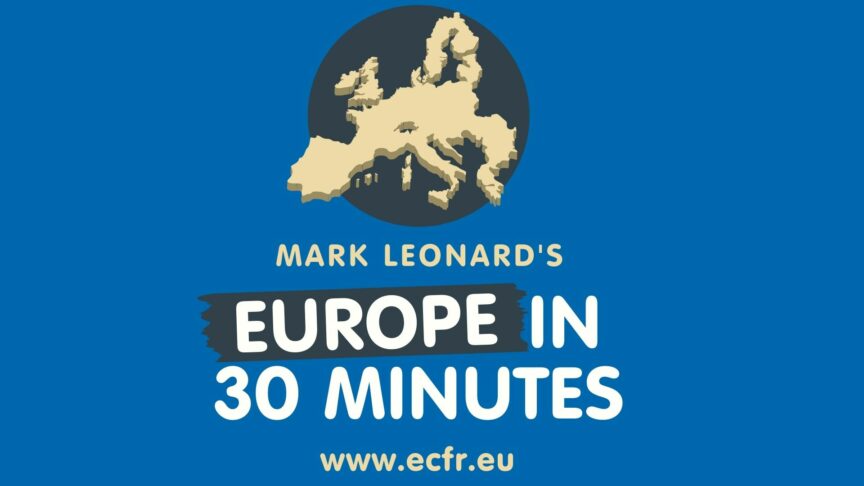
Vessela Tcherneva welcomes Camille Grand, Camille Lons, Marta Prochwicz Jazowska, and Jana Puglierin to discuss the 75th NATO summit, and how Europe can defend itself with less America
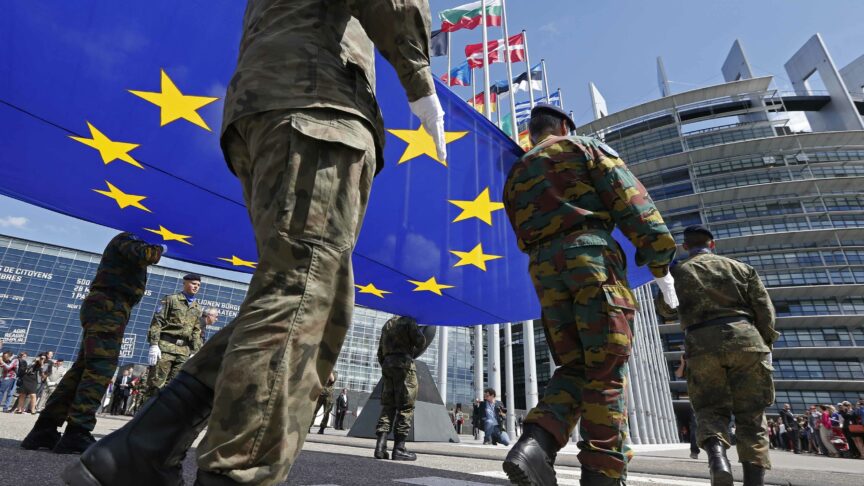
Shifting US priorities and a degrading security environment – not to mention the possibility of a second Trump presidency – mean Europeans finally have to take more responsibility for their own security

Despite the challenges AI poses to democratic stability in Latin America, the region lacks stringent regulation. To bolster AI governance, the EU, a leader in AI regulation, should lend a helping hand
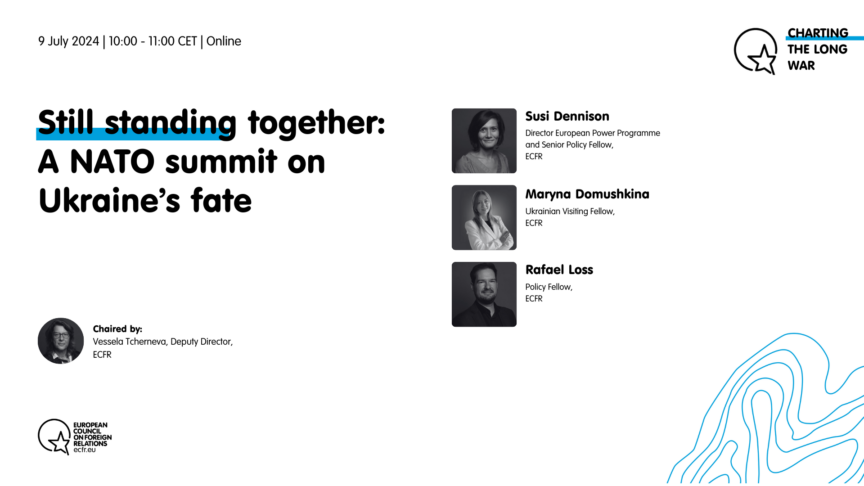
As leaders are about to take pivotal decisions for Ukraine’s fate at the NATO summit, join us for a discussion about pathways and policy options for…
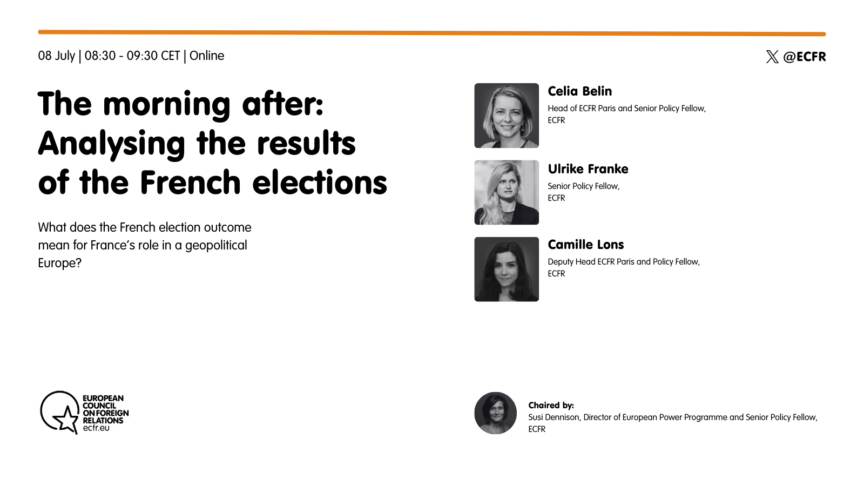
As France discovers the new making of its national assembly, this webinar will analyse the election results and reflect on their impact on a geopolitical…
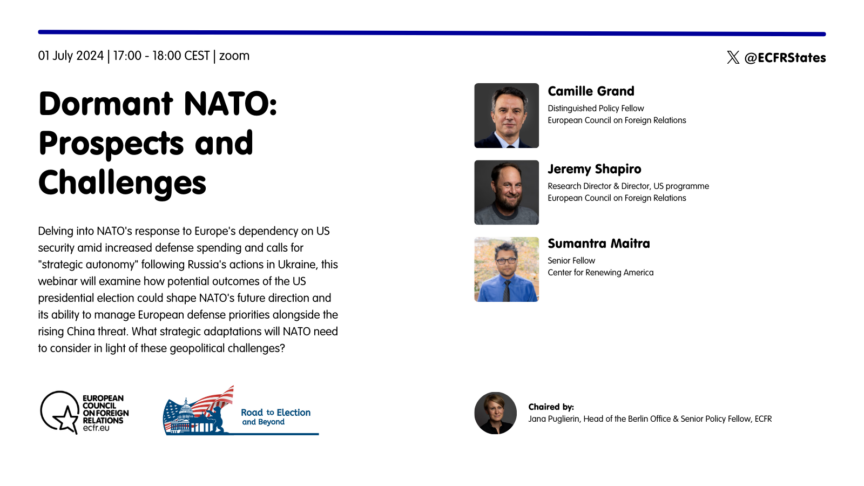
Russia’s war against Ukraine has shown how much the Europeans are still dependent on the US to ensure their security, despite all the talk of…
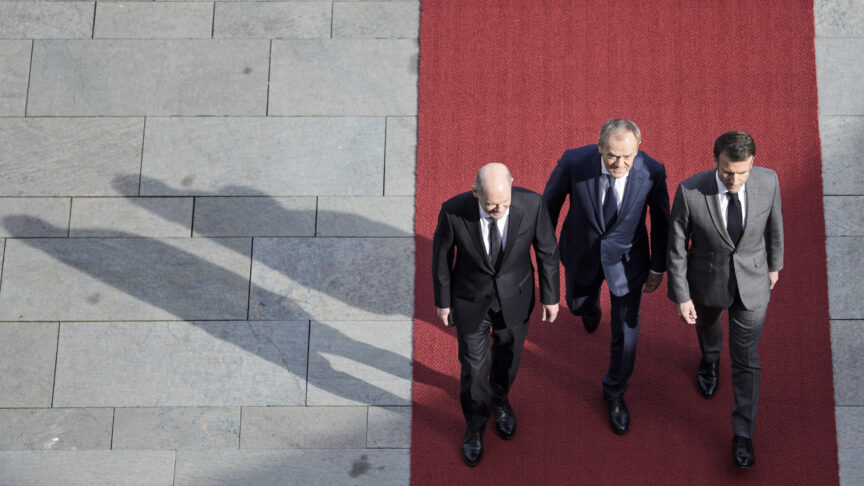
While the traditional Franco-German axis has fallen short of providing the kind of unifying leadership that the EU so desperately needs, the addition of Poland could change everything. And should Donald Trump win the US presidential election, this triumvirate would become Europe’s best hope for salvation
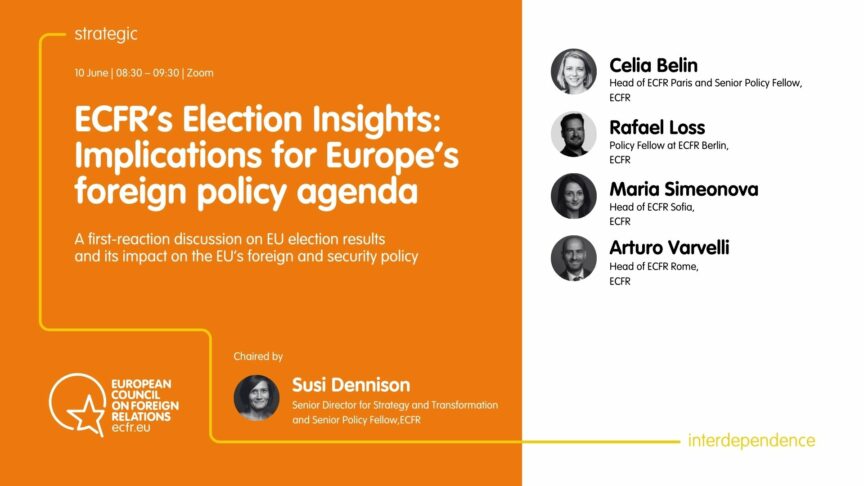
This webinar will provide a snapshot analysis of election results and their implications for Europe’s foreign policy and security agenda. Featuring perspectives from selected ECFR…
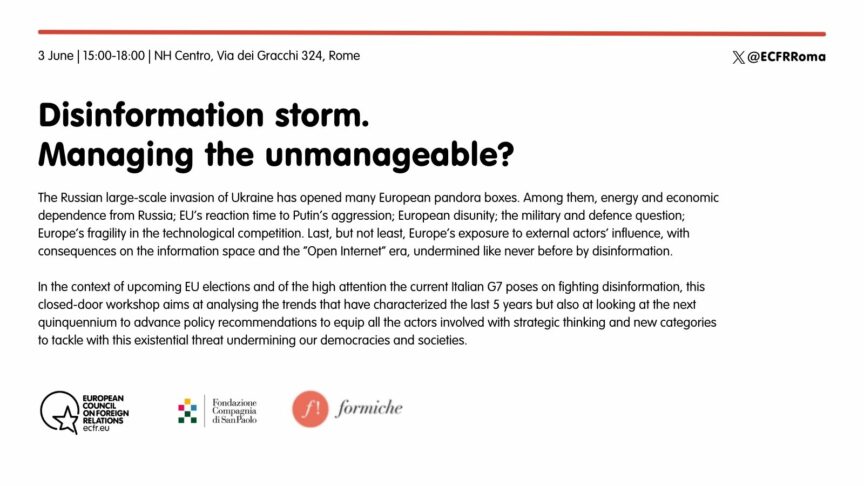
The Russian large-scale invasion of Ukraine has opened many European pandora boxes. Among them, energy and economic dependence from Russia; EU’s reaction time to Putin’s aggression; European disunity; the military and defense question; Europe’s fragility in the technological competition. Last, but not least, Europe’s exposure to external actors’ influence, with consequences on the information space and the “Open Internet” era, undermined like never before by disinformation

Shifting US priorities and a degrading security environment – not to mention the possibility of a second Trump presidency – mean Europeans finally have to take more responsibility for their own security
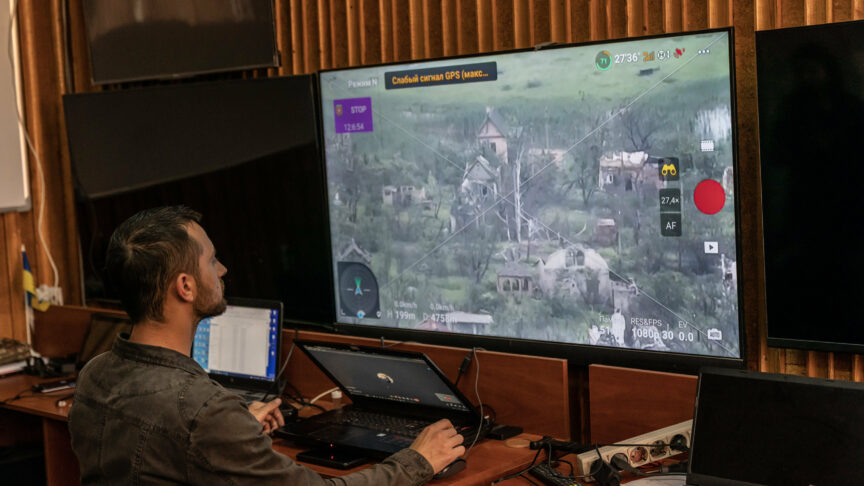
Russia’s war on Ukraine has featured many of the technological advances the world has made over the past decades. If Europeans are serious about their defence capabilities, they need to learn from this use of emerging technology on both sides of the war
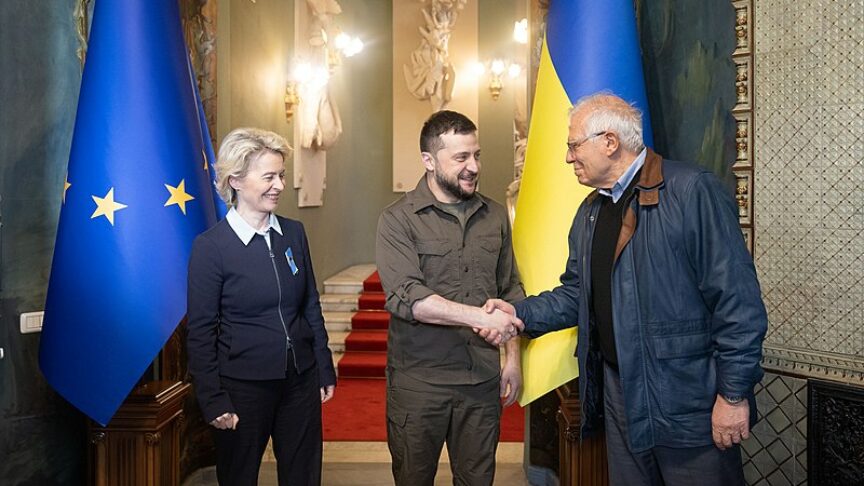
The EU should conclude a security compact with Ukraine. Such an agreement would help the country defend itself against Russia and maximise the effectiveness of European military support
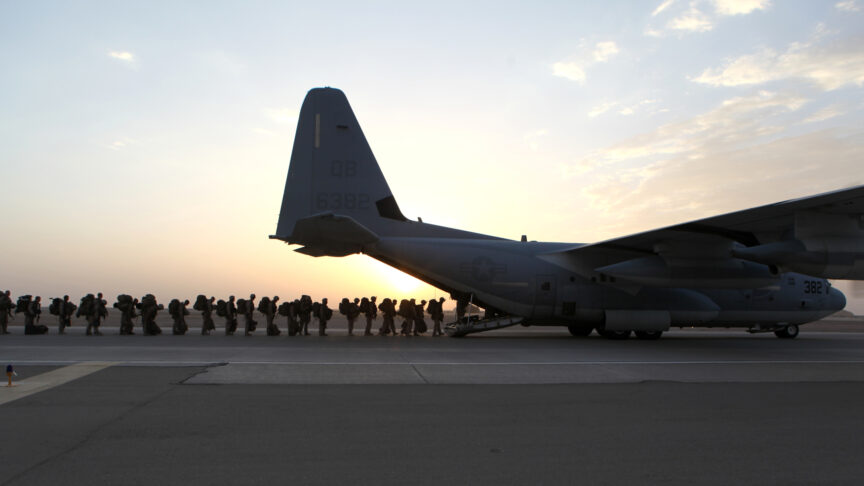
ECFR’s policy experts examine what the Taliban takeover means for countries and regions around the world: Europe, the US, the Middle East, Russia, China, Iran, Turkey, and the Sahel
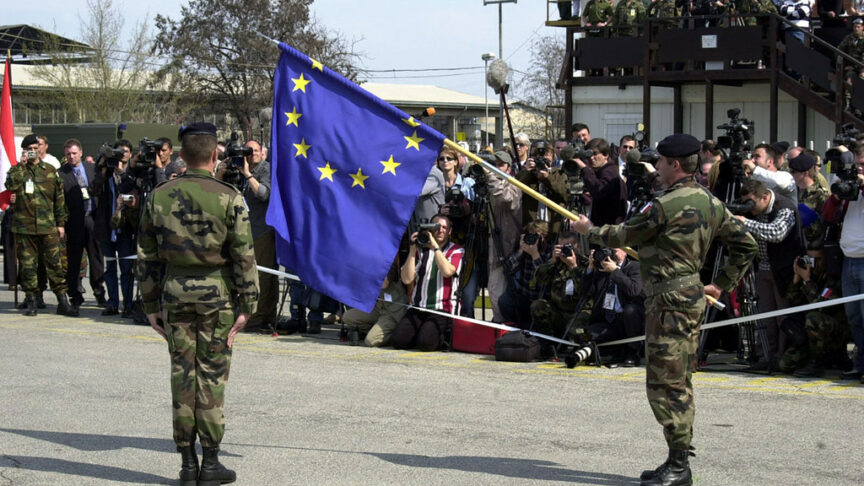
The EU’s work on its Strategic Compass should include debates on the special status states’ future role in European defence
The EU Coalition Explorer survey reveals the importance of Germany and France within the EU, and the impact they can have when they cooperate with each other
The EU appears to be largely uninterested in AI’s geopolitical importance, but its member states can only influence the global development of AI if they act tog
Introduction For most Europeans, it is now obvious that the foreign policy of US President Donald Trump threatens the global liberal order. Trump’s hostility towards…
Introduction During the cold war, arms control and disarmament agreements helped create a stable equilibrium between NATO and the Warsaw Pact, reducing the…
The ‘second crypto war’ is in full swing; European governments need to stop trying to defeat encryption and get more sophisticated themselves instead

The EU’s red tape is preventing it from responding quickly enough to major crises. An EU defence production act could help

Despite the challenges AI poses to democratic stability in Latin America, the region lacks stringent regulation. To bolster AI governance, the EU, a leader in AI regulation, should lend a helping hand

While the traditional Franco-German axis has fallen short of providing the kind of unifying leadership that the EU so desperately needs, the addition of Poland could change everything. And should Donald Trump win the US presidential election, this triumvirate would become Europe’s best hope for salvation

In the lead up to the European Parliament election, rising Russian disinformation threatens to sway voters. No matter the election result, the EU should take coordinated and assertive action
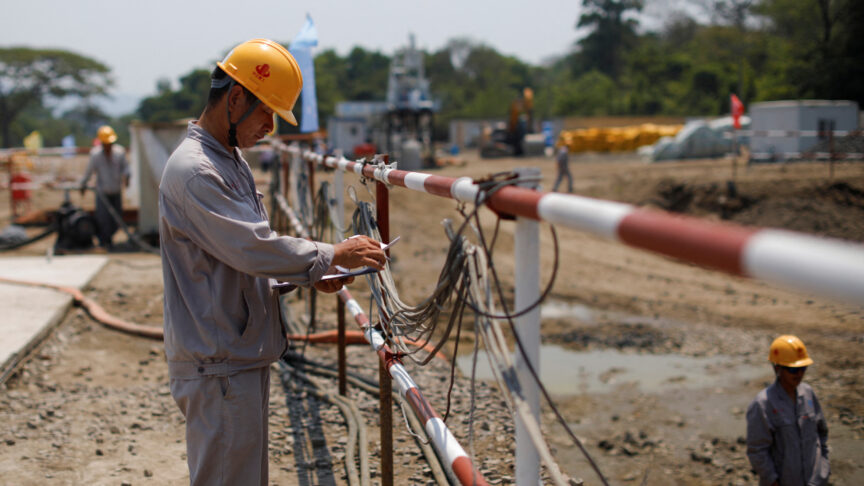
As Beijing’s investment approach to Latin America focuses on industries of strategic importance, the EU and US will need to contend with growing Chinese competition
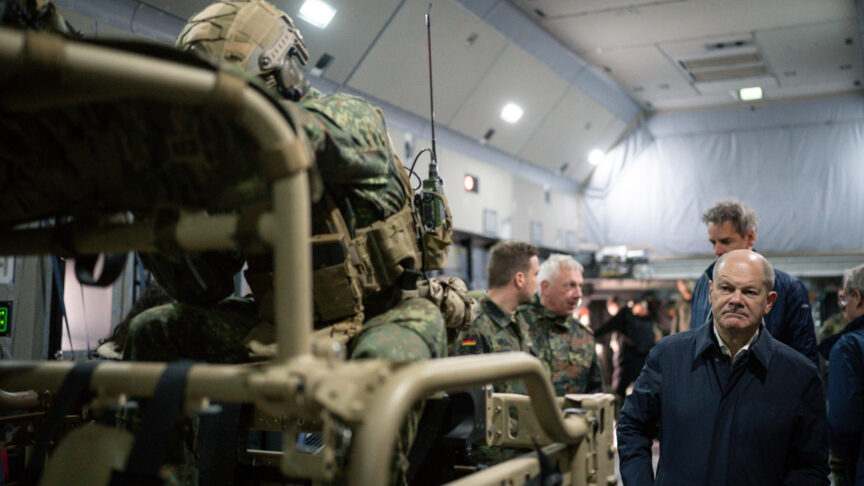
Germany’s defence policy has come a long way in the last two years. But looking at the challenges that lie ahead for Germany, the current course falls short – and the toughest political debates are yet to come

The European Commission’s new defence industrial strategy sets out to strengthen the EU’s defence industry through common and local procurements. But it will need both financial and political buy-in to succeed
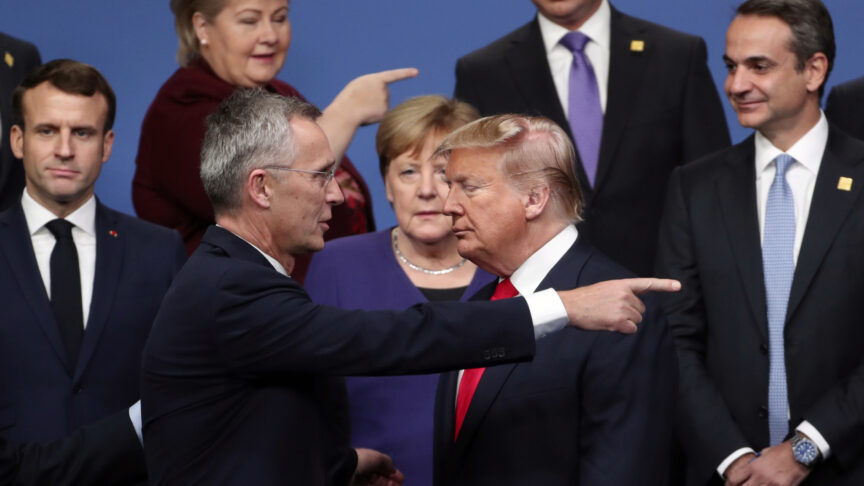
With the possibility of a second Trump presidency looming, it is high time to Europeanise NATO’s defence plans
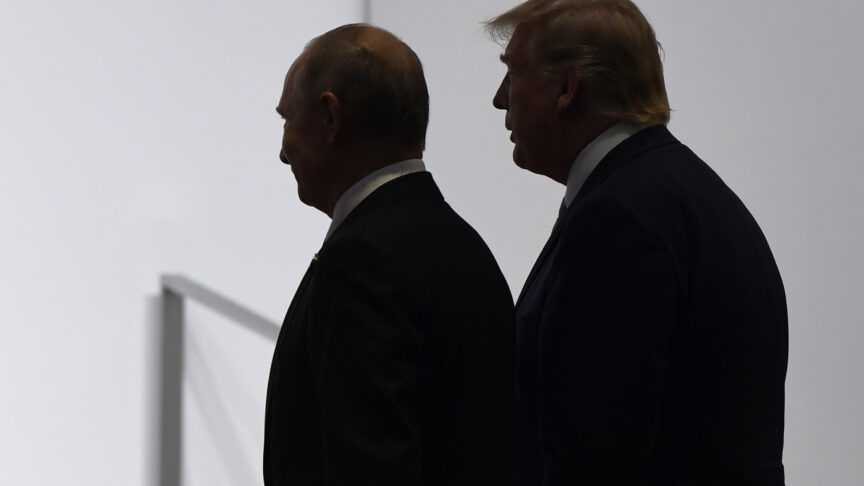
In the 1950s, European nations tried and failed to build a defence community. They should try again
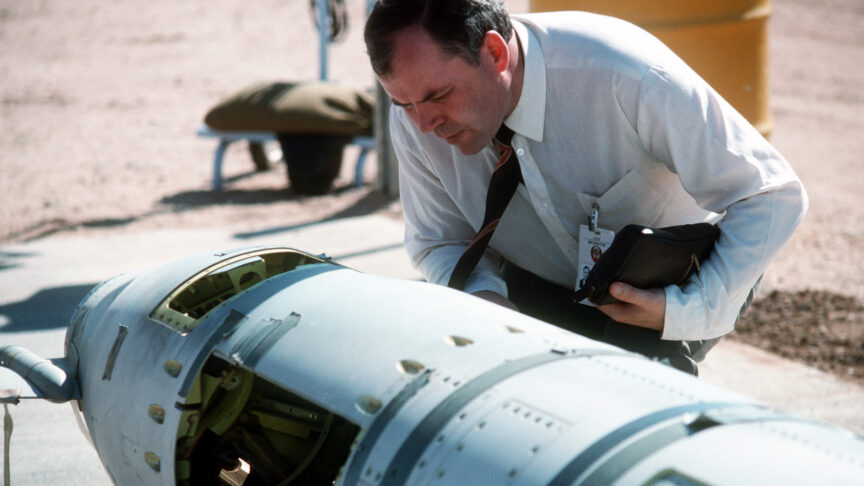
As China and Russia expand their nuclear arsenals, US security guarantees are beginning to lose their weight. Now, American allies may start to consider taking up the nuclear option themselves
Europeans remain unwilling to renew their thinking on nuclear deterrence, despite growing strategic instability. Their stated goal of “strategic autonomy” will remain an empty phrase until they engage seriously on this matter
Great power competition is increasingly shaping Europeans’ security environment, while other security threats are also on the rise, from terrorism and cyber attacks to climate change

Vessela Tcherneva welcomes Camille Grand, Camille Lons, Marta Prochwicz Jazowska, and Jana Puglierin to discuss the 75th NATO summit, and how Europe can defend itself with less America

Mark Leonard welcomes Angela Zhang to discuss China’s Big Tech regulation

Mark Leonard welcomes Andrew Wilson to discuss political technology and the globalisation of political manipulation

Mark Leonard welcomes Anthony Dworkin to discuss the role of international law and justice in an increasingly fragmented world

Mark Leonard welcomes Ulrike Franke and Jana Puglierin to discuss the recent turmoil surrounding Germany’s defence policy

At the Munich Security Conference, Mark Leonard welcomes Arancha González Laya, Camille Grand and Jana Puglierin to understand how Europeans can prepare for a second Trump presidency

Mark Leonard welcomes Camille Grand to discuss the future of European defence
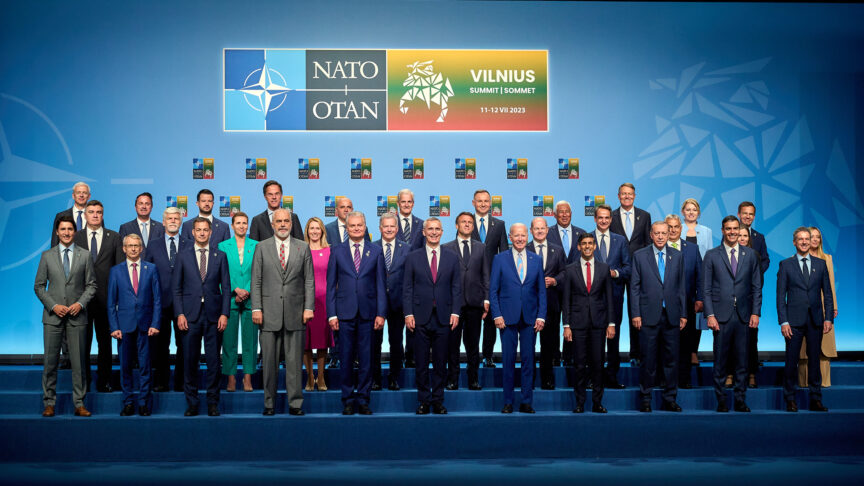
Mark Leonard is joined by Alex Stubb, Lykke Friis, and Camille Grand, to discuss the outcomes of the NATO summit in Vilnius.
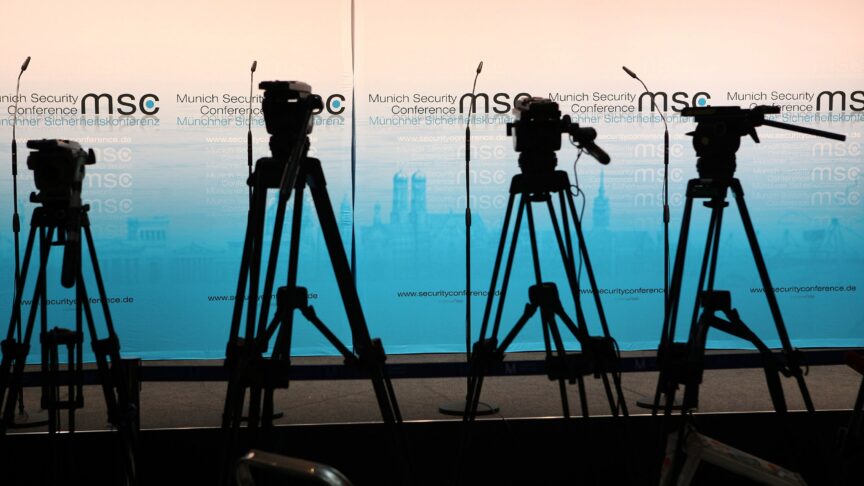
Mark Leonard reports live from the Munich Security Conference
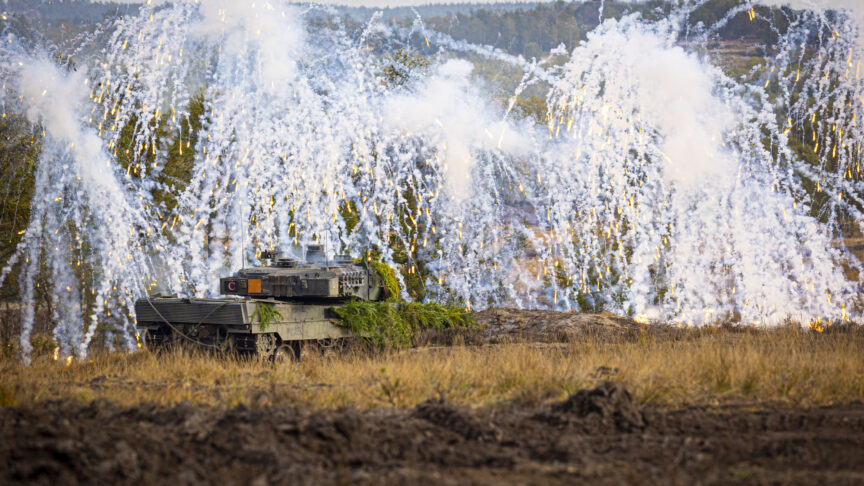
Mark Leonard, Camille Grand, Gustav Gressel, Jana Puglierin, and Jeremy Shapiro discuss what the Leopard 2 decision means for the war in Ukraine

As leaders are about to take pivotal decisions for Ukraine’s fate at the NATO summit, join us for a discussion about pathways and policy options for…

As France discovers the new making of its national assembly, this webinar will analyse the election results and reflect on their impact on a geopolitical…

Russia’s war against Ukraine has shown how much the Europeans are still dependent on the US to ensure their security, despite all the talk of…
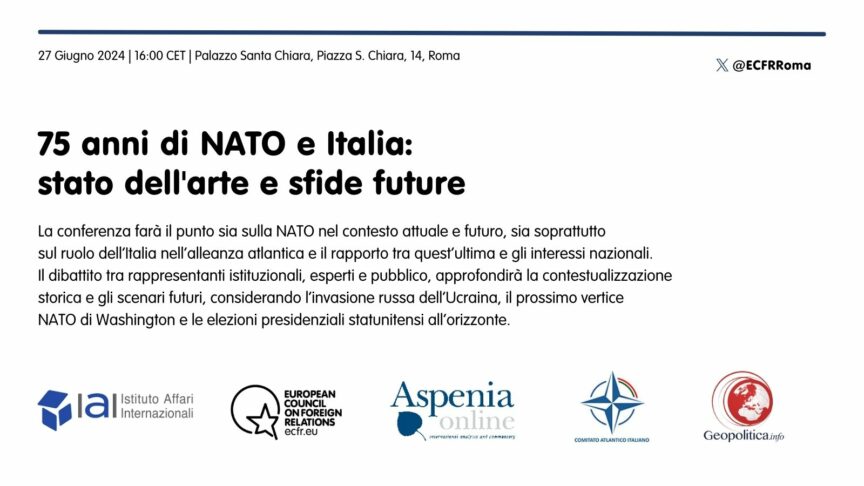
In occasione del 75esimo anniversario della NATO, la conferenza farà il punto sia sulla NATO nel contesto attuale e futuro, sia soprattutto sul ruolo dell’Italia nell’alleanza atlantica e il rapporto tra quest’ultima e gli interessi nazionali

This webinar will provide a snapshot analysis of election results and their implications for Europe’s foreign policy and security agenda. Featuring perspectives from selected ECFR…

The Russian large-scale invasion of Ukraine has opened many European pandora boxes. Among them, energy and economic dependence from Russia; EU’s reaction time to Putin’s aggression; European disunity; the military and defense question; Europe’s fragility in the technological competition. Last, but not least, Europe’s exposure to external actors’ influence, with consequences on the information space and the “Open Internet” era, undermined like never before by disinformation
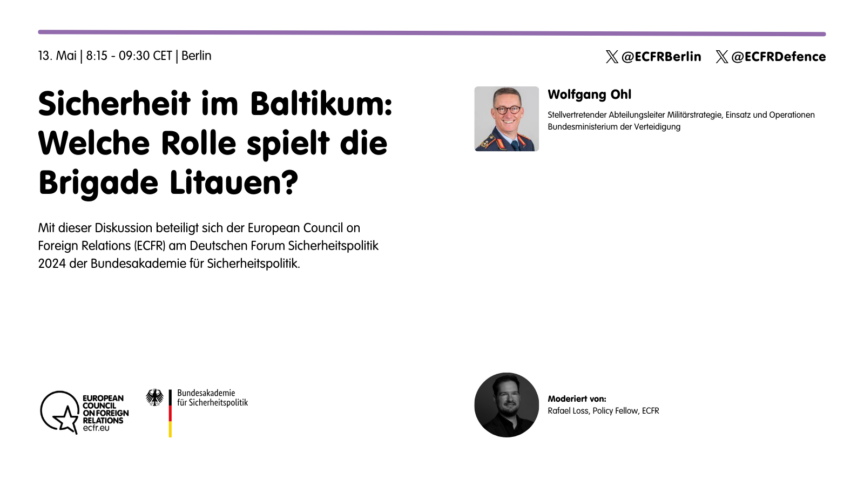
Am 8. April 2024 brach das 21-köpfige Vorkommando der Brigade Litauen nach Vilnius auf. Die Bundeswehrangehörigen werden in den nächsten Wochen und Monaten die erste…
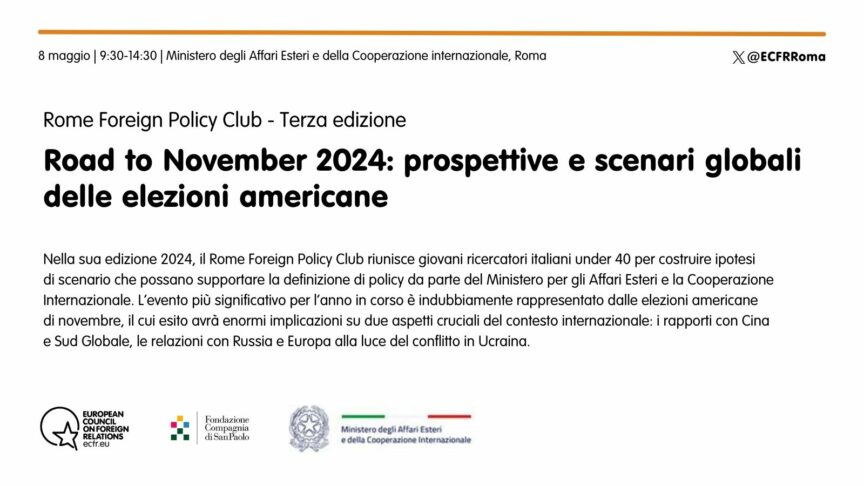
Nella sua edizione 2024, il Rome Foreign Policy Club riunisce giovani ricercatori italiani under 40 per costruire ipotesi di scenario che possano supportare la definizione di policy da parte del Ministero per gli Affari Esteri e la Cooperazione Internazionale. L’evento più significativo per l’anno in corso è indubbiamente rappresentato dalle elezioni americane di novembre il cui esito avrà enormi implicazioni su due aspetti cruciali del contesto internazionale: i rapporti con Cina e Sud Globale e le relazioni con Mosca alla luce del conflitto in Ucraina
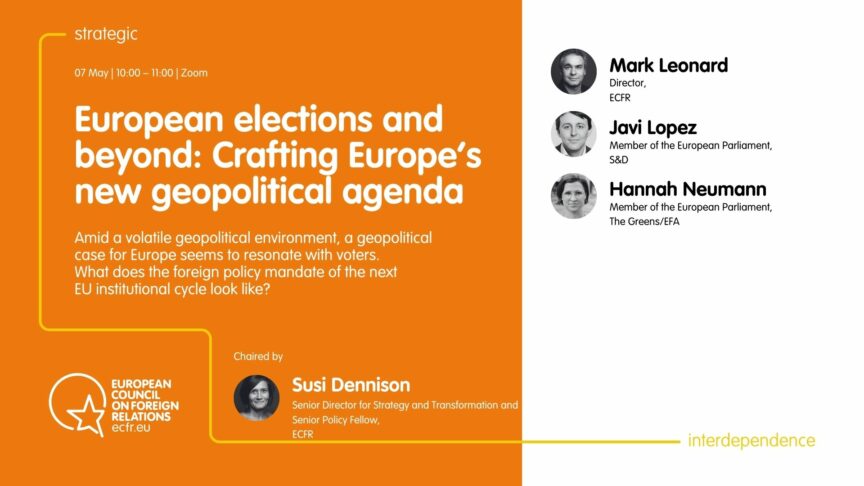
Amid a volatile geopolitical environment, ECFR’s recent public opinion poll ahead of the European elections shows that a geopolitical case for Europe resonates with voters,…
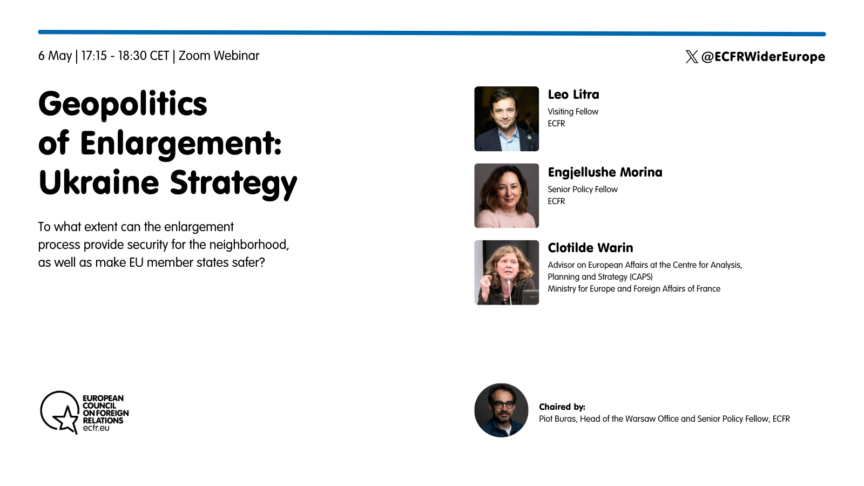
This webinar will discuss current revisions of the EU approach to enlargement policy and the security implications for Ukraine and the neighborhoods